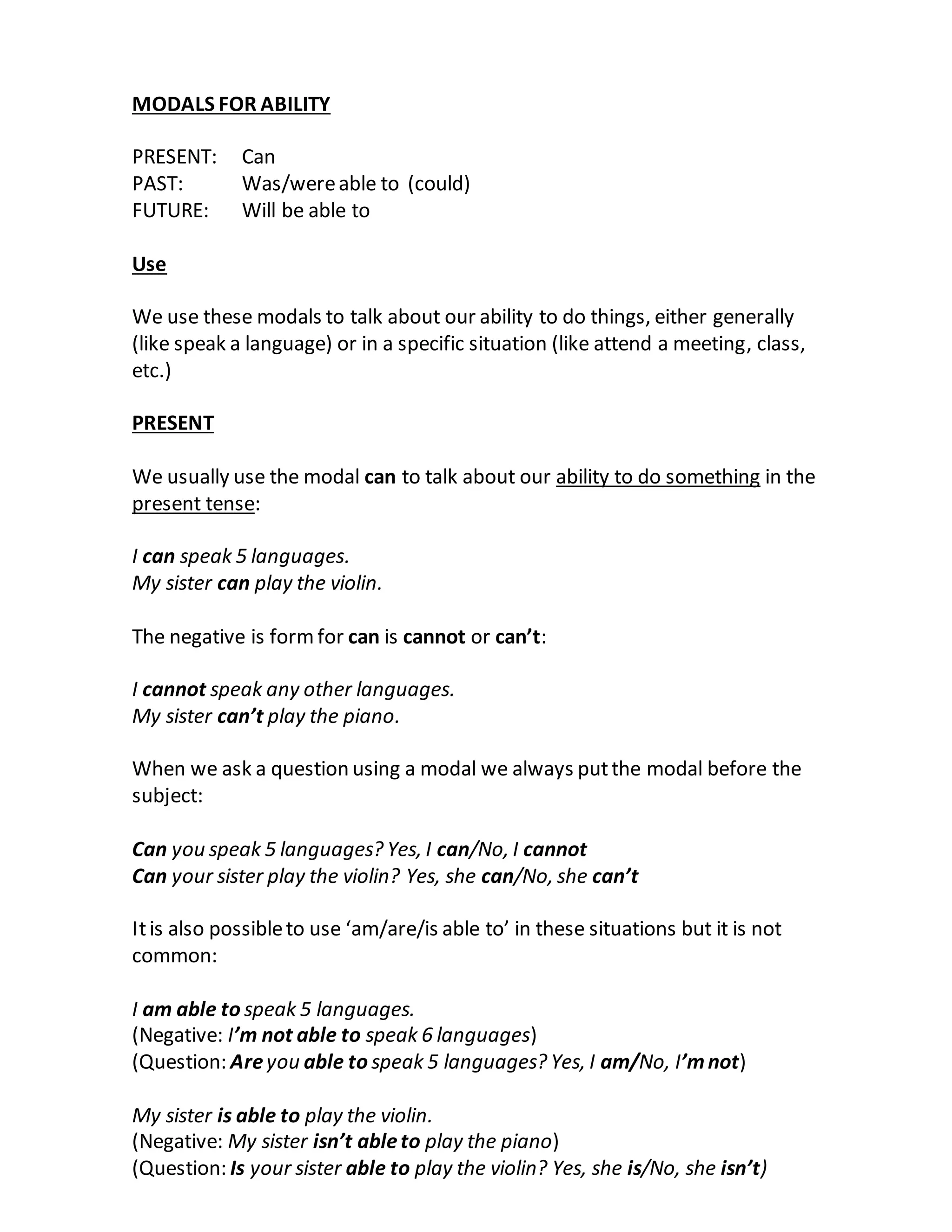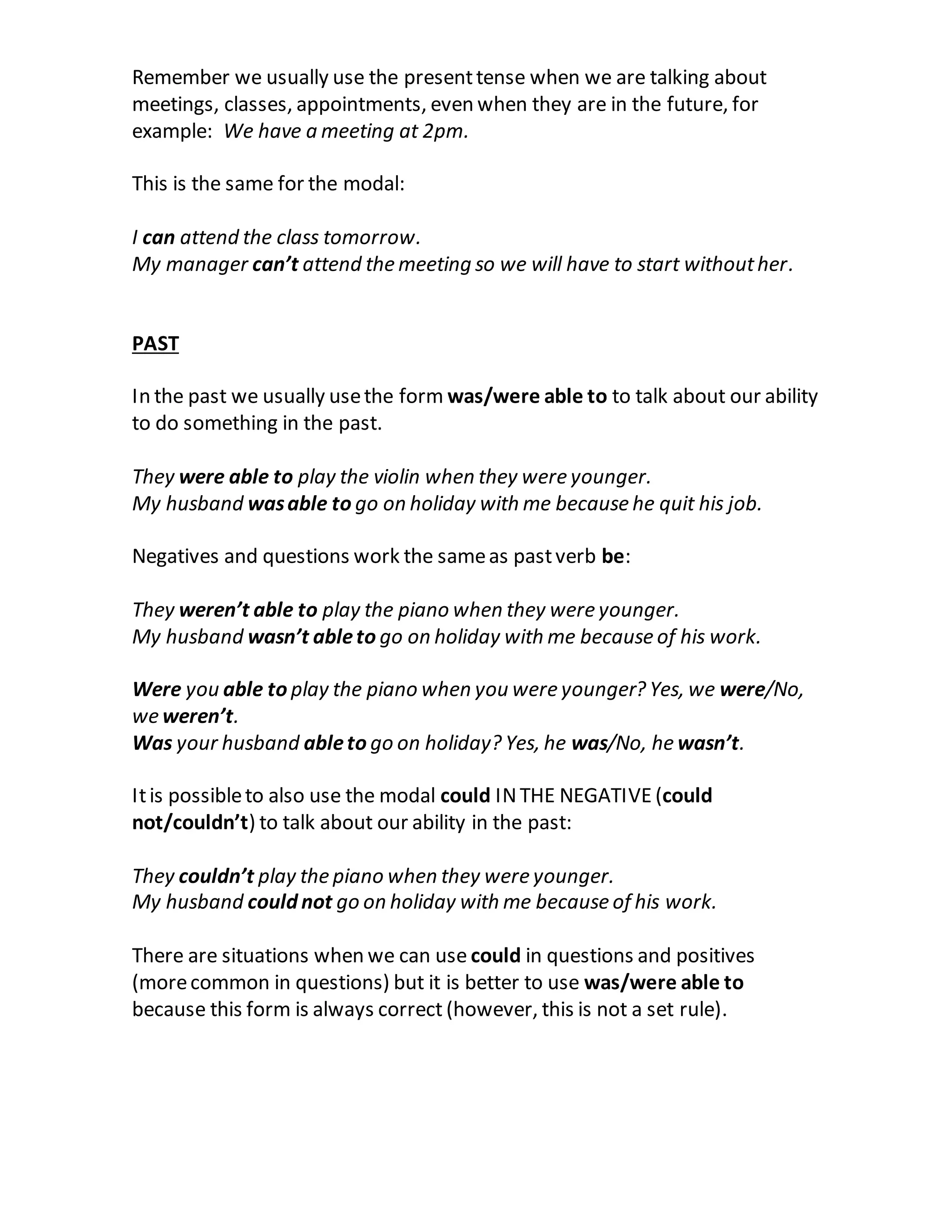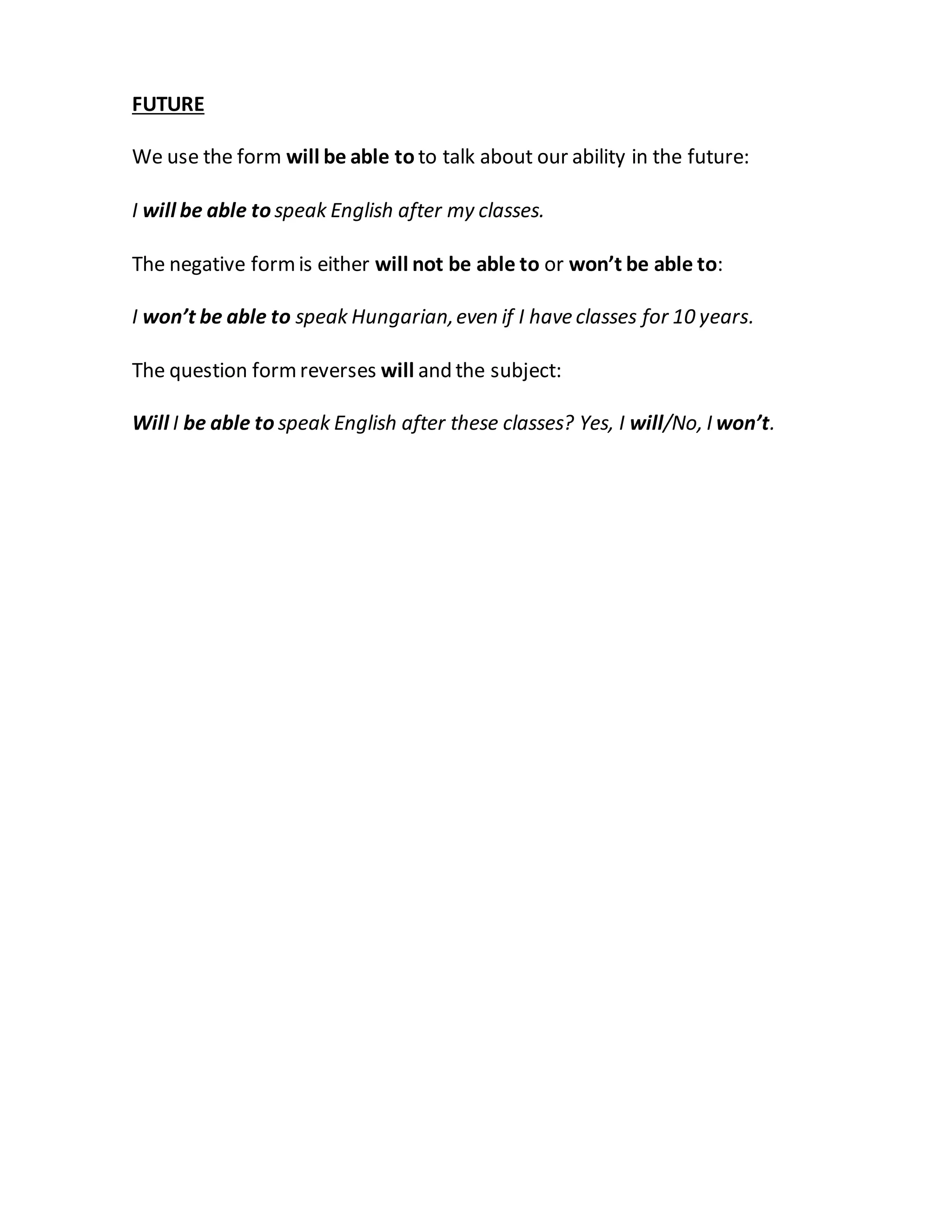The document discusses modals used to express ability in English in the present, past, and future tenses. In the present tense, "can" is used to express ability, while "was/were able to" is used for the past tense. For the future tense, "will be able to" expresses what one will be capable of doing. Examples are provided for affirmative, negative, and interrogative sentences using these modals in each tense.


